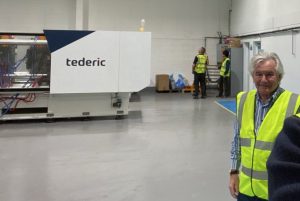Manchester, Liverpool and Preston to have local TV stations

CULTURE Secretary Jeremy Hunt has announced the 20 locations expected to be the first to have their own local TV stations – including three in the North West.
Manchester, Liverpool and Preston are among a list of “pioneer areas” to be chosen from a shortlist of 65, which were identified in the summer to possibly run the schemes which Hunt has been championing.
The aim is to create a series of “commercially viable” stations carrying locally made programmes and news across the UK, following the example of local television in the US.
Others selected were Belfast, Birmingham, Brighton and Hove, Bristol, Cardiff, Edinburgh, Glasgow, Grimsby, Leeds, London, Newcastle, Norwich, Nottingham, Oxford, Plymouth, Southampton and Swansea.
The locations were chosen following a consultation on the level of interest from potential operators and audiences in areas thought to be technically capable of receiving a local TV service.
The government is now taking a number of steps to create a new statutory framework for licensing that will allow for transmission infrastructure to be built and the new local TV services to start operating.
Broadcasting regulator Ofcom will soon conduct a further consultation into how licences will be awarded, although it is expected to be through competitive tendering, with bids from commercial and not-for-profit operators.
The first new stations could be broadcasting from 2013, following the award of licences from summer 2012.
In Preston, consortium Ribble TV, which is led by Panorama producer Jim Booth, has announced that it plans to bid for the licence.
Others involved in Ribble TV include former North West Regional Development Agency boss Steve Broomhead, who is a non-executive director, and David Jackson at CTMS, and Charles Lucas of Going for Grants.
It plans to produce a mix of news, current affairs and entertainment programs for Preston, Blackpool, the Fylde coast, Chorley, Leyland and Southport.
It is in talks with a larger London bidder that has plans to pull together a clutch of local companies, to help finance the station.
The BBC licence fee settlement last year allowed for the corporation to provide up to £25m of capital funding for local TV services, plus a further £15m to acquire local content. The final figure will need to be approved by the BBC Trust.









